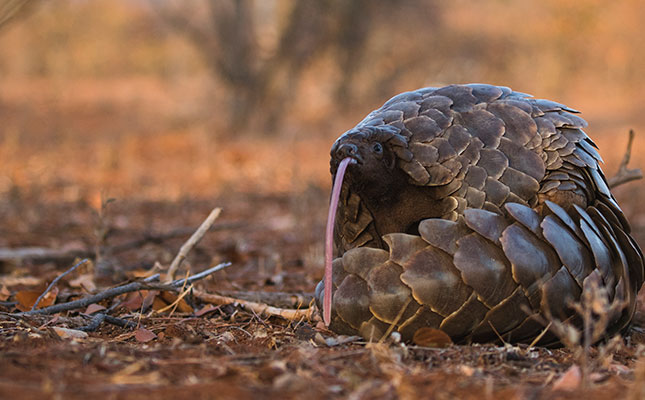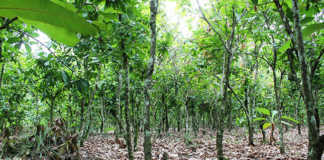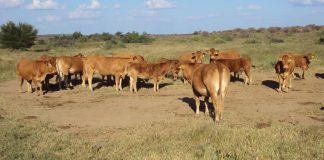
Photo: Francois Meyer , African Pangolin Working Group
The pangolin is the world’s most trafficked mammal, being sought after for its scales for the manufacture of traditional medicine, particularly in China. This was according to Prof Ray Jansen, chairperson of the African Pangolin Working Group.
“However, it has emerged that there is a strong likelihood that the [recent] outbreak of the [novel] coronavirus could be linked to the consumption of pangolin body parts. It seems as if the virus originated from bats, but has mutated [to infect] a species of Asian pangolins,” he said.
As a result of the possible linkage between animals such as pangolins and bats and the novel coronavirus, China’s government has banned the trade of all wild animals, including indigenous Asian species of the pangolin. Jansen said that this could markedly benefit the conservation of pangolins.
Pangolins were under severe threat in Africa, particularly Central Africa and West Africa, Jansen said. However, he added that it was difficult to measure the impact of pangolin smuggling in South Africa due to the animal’s secretive behaviour.
He also said that the pangolin’s nocturnal nature made it impossible to accurately count the population.
Over the past year, 36 cases of pangolin poaching were investigated in South Africa, while 43 cases were investigated in 2018.
Jansen said the African Pangolin Working Group was working in close co-operation with the stock theft units of the South African Police Service.
“Humans are largely to blame for the spread of diseases such as coronavirus, Ebola and SARS [severe acute respiratory syndrome]. These diseases can, for the most part, be ascribed to the consumption of bush meat,” he said.
According to the African Pangolin Working Group’s website, there were eight species of pangolins worldwide, of which four occurred in Asia, and four in Africa. Together, these species comprised the Pholidota order.
Pangolins are unique, as they are the only mammals whose bodies are covered in scales rather than fur. These scales are composed of keratin, although some species also have a hard layer of calcareous material underneath the keratin.
The belly, underside of the head and inside of the limbs are not covered with scales. All pangolins have long, strong claws on their front limbs, which are used for digging and climbing.
Pangolins are predominantly solitary and nocturnal, but become active earlier in winter, while some may become entirely diurnal during winter.













